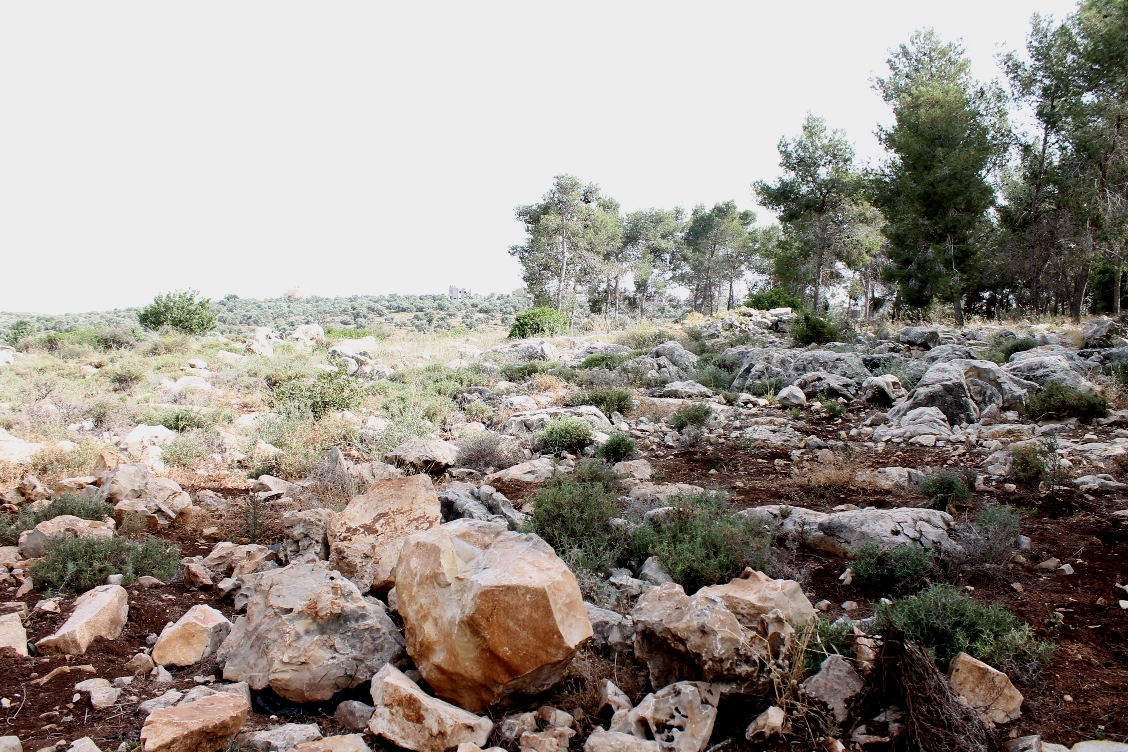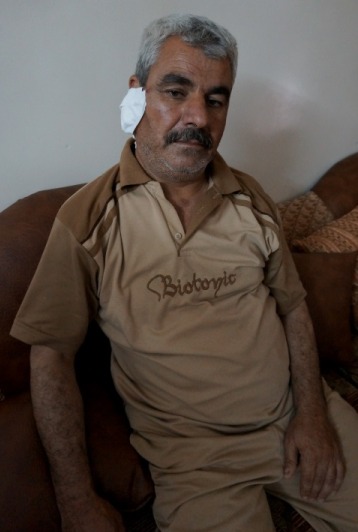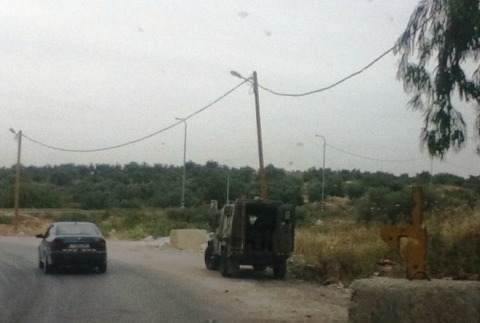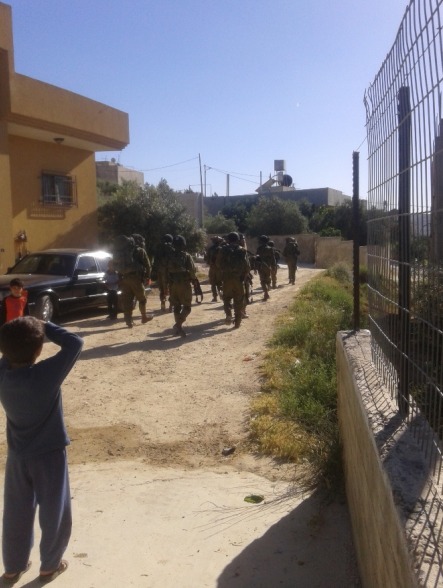Category: Nablus
-

Almost three out of four houses in Izbat at Tabib are at risk of demolition
8th May 2014 | International Solidarity Movement, Nablus Team | Izbat at Tabib, Occupied Palestine Izbat at Tabib, a small town of approximately 300 people located in the northwest of the West Bank, has 33 houses with demolition orders pending. The town totals 45 houses, this means that the demolition orders could destroy over 73% the town.…
-

Asira Attacked 4 Nights in a Row
7th May 2014 | International Women’s Peace Service | Asira al-Qibliya, Occupied Palestine Israeli army raided the village of Asira al-Qibliya (south of Nablus) at 1 am on 5 May, arresting a 21-year-old, brutally assaulting his uncle, and terrorising the family’s children with attack dogs. Dozens of Israeli soldiers invaded Asira by foot, sneaking in from the backside of…
-

Israeli army target children in Azzun
7th May 2014 | International Women’s Peace Service | Azzun, Occupied Palestine If the people of ‘Azzun seem nervous, they have a right to be. The town (population approximately 10,000) sits on crossroads – Qalqiliya is to the west, Nablus to the east, Salfit to the south and Tulkarem to the north. This is a junction that is vulnerable…
-
Harassment in Awarta
2nd May 2014 | International Solidarity Movement, Nablus Team| Awarta, Occupied Palestine At 4.30 am on Wednesday the 30th of April; a group of Israeli soldiers broke into a family home in the village of Awarta, near the illegal settlement of Itamar. 11 soldiers woke up the family, claiming that it was “security search”. A member of the family…
-
Six arrested in Burqa (Nablus) by the Israeli army with no reasons given
25th April 2014 | International Solidarity Movement, Nablus Team| Burqa, Occupied Palestine On the night of the 23rd to 24th of April, approximately 24 Israeli military vehicles entered the town of Burqa and arrested six Palestinian youths. The Israeli army forced its way into five out of the six houses, using a device to break open the doors.…


